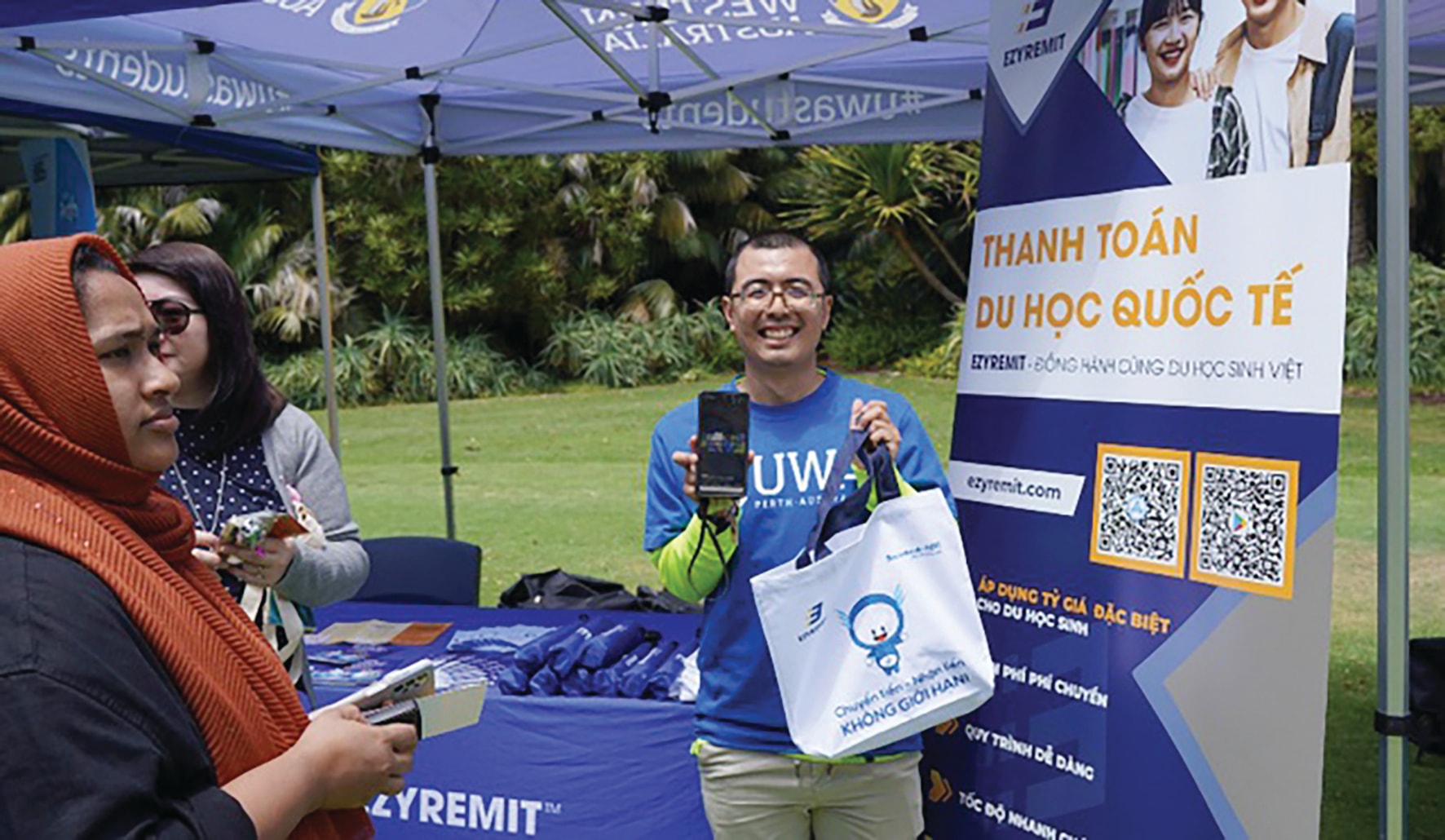Opportunity to boost cross-border fintech
Viet Nam is entering a golden window to develop cross-border payment platforms, driven by strong remittance demand, a young population, and encouraging improvements in the regulatory framework.

In an interview with Business Forum Magazine, Mr. Allan Nguyen, Co-Founder of fintech company EzyRemit, emphasized that to seize this opportunity, Vietnamese fintech firms need to step out of their “comfort zone” and pursue globalization strategies.
– What makes Viet Nam an attractive destination for international fintech companies, particularly in remittances and cross-border payments?
In my view, Viet Nam has three very clear advantages. First, a young and well-educated demographic. This workforce is tech-savvy and eager to try out new financial services such as e-wallets, digital banking, or blockchain.
Second, Viet Nam consistently ranks among the world’s largest recipients of remittances, estimated at USD 18–20 billion annually. This creates a natural market for international money transfer solutions—provided they are transparent, cost-efficient, and trustworthy.
Third, Viet Nam is embracing digitalization, especially in areas such as eKYC, user authentication, and financial literacy. Vietnamese consumers, particularly the younger generation, are always willing to adopt new things.
That is why, although EzyRemit has multiple markets, we identified Viet Nam as our core market from the beginning. Today, it accounts for more than half of our total revenue.
– How has EzyRemit capitalized on this opportunity to compete with giants like Western Union or other traditional services?
Western Union and similar providers mostly rely on physical agent networks. Customers must go to a branch, fill out paperwork, and wait for their funds. EzyRemit chose a completely different path: a 100% digital platform, directly integrated with major banks and financial institutions in Viet Nam such as Vietcombank, Sacombank, and ACB. Thanks to open API connections, transfers from Australia to Viet Nam now take as little as 20 seconds to one minute.
As a startup, we invest heavily in technology. Artificial intelligence is applied across multiple layers—from automated eKYC that verifies identity in seconds instead of hours, to fraud detection systems that flag abnormal behavior and personalize the user experience. This has helped us process customer onboarding 60% faster and improve fraud detection accuracy by more than 40%.
For customers, the difference is clear. There is no waiting, no language barrier—our Vietnamese support team is available 24/7. Beyond simple transfers, we also integrate services like tuition payment, hospital fees, and insurance in Viet Nam. This is how we build the next generation of remittance services—what I call “Remittance 3.0,” where remittances are not just family obligations but also long-term emotional and economic investments.

– What are the biggest challenges that companies like EzyRemit face in Viet Nam?
The two main barriers are trust and regulation.
On the user side, most Vietnamese are still used to cash or traditional bank transfers. Shifting behavior toward fintech apps and online transactions is a gradual process that requires persistent market education.
On the regulatory side, the ecosystem for fintech, remittances, and digital assets is still evolving. Foreign businesses must be extremely careful to ensure full compliance.
That said, Viet Nam is heading in the right direction. The introduction of a fintech sandbox is a necessary step, and if expanded to areas such as remittances or consumer data sharing, the market will become even more competitive and transparent.
Another promising sign is that many major Vietnamese banks have begun to open APIs for fintech connections—something nearly impossible just a few years ago. For us, partnering with trusted local banks not only facilitates transactions but also helps build trust and secure our place in Viet Nam’s financial ecosystem.
– What do Vietnamese fintech startups need to do to grow stronger and expand internationally?
Most startups are still too focused on the domestic market. But the “pie” is not big enough, and it is already being divided into smaller pieces. For sustainable growth, they must think bigger and step out of their comfort zones.
Viet Nam has every chance to become a regional fintech hub if it leverages its technology strengths, local market knowledge, and expands to neighboring countries such as Laos, Cambodia, or Thailand—where the fintech ecosystem is still in its infancy.
In addition, startups need to adopt international standards in operations, negotiations, product development, and leadership. These are qualities that global investors and partners look for.
I believe the greatest strength of Vietnamese startups lies in their deep understanding of local consumer habits and psychology. If they combine that with modern technology and a global mindset, they will have the formula to go further—and potentially become leading players in digital finance across Asia.
– Thank you very much for your insights!








